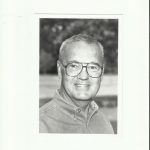I read a great book last week. Again.

I read a great book last week. Again.
By Jack McDonough
The next best thing to reading a good book is finding a good book.
While finding The Book is the goal, the search for that next great read is fun, too. It may be like deer hunting. You know the deer is in those woods somewhere and maybe today is your lucky day.
Same with books. There are thousands in libraries and bookstores and you know there’s one in there somewhere that you’d really like.
Alas. Libraries and some bookstores are unavailable in the time of pandemic.
For the time being, no more dropping in to the Tewksbury Library and prowling around the second floor where fiction and non-fiction live. What’s your pleasure? Browse both. Inhale that yummy aroma of paper and ink. Ignore those people using computers in the fiction area. (What are they doing there anyway?)
In these accursed Covid days I also miss the honor-system books for sale on the first floor. You can go wild there. Drop 25 or 50 cents, or maybe a dollar if you totally lose control.
Regardless of the trying times, though, you can always use a reminder of what’s new in print and what old ones you may have overlooked. But where do you look for inspiration?
One place is The New York Sunday Times Book Review, which you can subscribe to without getting the whole paper. Besides reviews of both fiction and non-fiction work, each issue includes an interview with a different author. While you may not care for anything the interviewee has written him/herself, the interview nearly always includes references to other authors and titles you might find appealing.
But there are a few things about these Times interviews that puzzle me. In no particular order they are the books and authors the interviewees read, the numbers of books many have on their nightstands and their method of organizing their books.
Here are the names of some authors mentioned in recent months: Saidiya Hartman, Kiese Laymon, Jesym Ward, Rachel Kaadzi, Olga Tokarczuk and Dasa Drndic. At the risk of exposing myself as a complete dunderhead, I must admit I never heard of any of these people.
On the other hand, one interviewee referred to such authors as James Baldwin, Norman Mailer, Joan Didion, Neil Sheehan and John LeCarre. Good. Back on firm ground.
One stock question in the interviewer’s quiver is “What books are on your night stand?” The response in many cases makes me wonder if the interviewed guest that week has a night stand beside the bed or a dining room table. One author listed eleven books as being on her night stand. Eleven!
I usually have one. Sometimes two. Rarely three. And after fifteen minutes of reading I’m falling asleep anyway. What would I ever do with eleven books?
Another stock question is “How do you organize your books?” Typical responses include: alphabetically by author; “Pile 1, Pile 2, Pile 3 and then some shelves”; and “Chaotic stacks.”
I subscribe to alphabetical by author with fiction, and subject matter for non-fiction. I know that may sound boring but how else are you going to find the one book you’re looking for out of hundreds?
Finally, I’m surprised that a number of people report reading the same book more than once. Sometimes once every year.
Mathematician Eugenia Cheng says she’s read “Pride and Prejudice” perhaps twice a year since she was 11. Novelist Edmund White says he reads “Anna Karenina” every year.
I could never understand why someone would re-read a book. Then the pandemic arrived and with the usual sources unavailable I’m re-reading books from my own library. The funny thing is that for the most part I don’t remember much about any of them.
So, while it works for me, the search through my own book shelves isn’t very thrilling. No woods. No rifle. No hunting dog. On the other hand, there’s no danger of getting Lime tick disease, either.
Jack McDonough of Tewksbury, Mass., wrote for United Press International, New England Telephone, Brandeis University, and UMass Lowell in his career as a reporter and editor. He’s a baseball fan from way back, and played his share of ballgames: “good glove-good stick.” We always appreciate his contributions to this publication.
